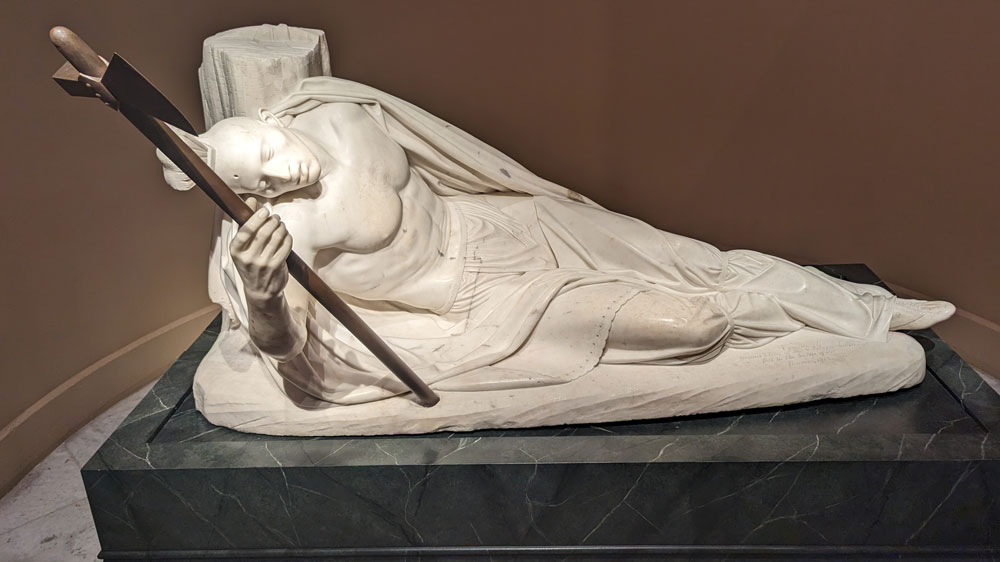Booty Candy, the play, is probably exactly what you think it is; a sexually infused theatrical force. Booty Candy, the object, will likely not be what you expect. But we’re here to talk about the play.
Anybody who loves having their expectations exceeded well beyond the imagination’s boundaries will delight in this production as much me. Driving home afterward felt like leaving a killer party.
Most of the characters are the least likely folks you’d ever expect to see represented on the stage. None of them had names because they all played lots of different roles in the play. If they had names, you really wouldn’t be able to keep up. They’re just actor #1, actor #2 through Actor #5.
It’s also pretty easy to lose track of how many scenes or sketches are whooshing by. (There are eleven.) One scene can flow into another; with a whole new dramatic thrust, when one actor leaves and the other stays to take the play in a whole new direction. You don’t realize until midway through the production that many of the scenes keep linking back to the to the very first one.
In it, a little boy is getting dressed to go to the store with his mother and asks her some rather sensitive questions about the anatomy. Being a no-nonsense mom, she shuts down the question and proceeds to remind him that he better behave at the store or else. Actor Two, Travis Turner, who proves so pivotal to the play, shape shifts with the best of them as he flows from little kid to stalked adolescent to a phenomenally cool gay guy who thrives on risk. If everyone else in the cast weren’t so talented themselves, it would be hard to keep your eyes off of him alone.
Booty Candy’s very gay, very black, ridiculously smart and crazy funny despite the myriad hard truths and blistering insights flying through the dialogue. To keep it simple and manageable, we’ll stick to the highlights. The first big one being the scene where the preacher comes out to his church during the Sunday morning service. Osiris Khepera, Actor Four, has the bearing and tonal gravitas of a true Baptist preacher. While chastising his congregation for promulgating rumors that some boys in the choir are gay, he speaks over the congregation and directs his advice to the boys themselves. Essentially demanding they be who they are and happy being whatever that is. He then defiantly steps away from the pulpit to reveal he’s wearing a pair of highly resplendent stilettos saturated in sequins. Preaching like the Holy Ghost would just not let him go, he returns to the pulpit to retrieve a flowing wig which he places majestically on his head. It’s only a matter of seconds before the robe gets jettisoned to disclose a tasteful cocktail piece underneath. The theater audience roared their approval. Like many spiritual axis, the black church’s leadership enjoys a well-deserved reputation for its often virulent denunciation of homosexuality. Concurrence among parishioners is so absolute that the topic is rarely even dignified with discussion. To see O’Hara take it on this taboo with such aplomb was like being zapped by hot righteous lightning.
There were many other notable sketches/scenes. The telephone conversation between two women dishing on the outrageous name one of their daughter’s is about to name its yet unborn child. The bus stop scene where a guy exacts a minor miracle by using empathy to get inside his mugger’s head. The astonishing confession of an effeminate boy at the kitchen table disclosing to his mother and step father that a man is trying to follow him home from school. Rather than be defended, he’s admonished and instructed to butch it up. No more show choir! The burgeoning affair between a young man and his brother-in-law. And the final scene where it all comes full circle in a surprising suspense laden climax.
As black as the play is, there was one exception who proved more than a little startling. Usually relegated to the role of simple foil when the cast is all minority, the sole white actor, Rob Fenton as Actor Five, functioned as a structural foundation for the play. In the sketch where a moderator was hosting a panel of black playwrights, it was essential that his character be white. As was true in one of the final sketches. In most of the scenes in which he appeared; at the bus stop, as the conflicted brother-in-law; even as the presider over the non-commitment ceremony which had to be seen and heard to be believed, his race was immaterial.
Like the other members of the cast, Fenton’s a fierce talent. One can only look forward with anxious anticipation to seeing them all again new productions.
Taking his cue from a play that was considered seminal to the evolution of black theater when it opened in 1986, O’Hara openly modeled Booty Candy on the Colored Museum. Like the Colored Museum, he uses a number of fast moving sketches to capture the essence of a number of black lives and thus, black life itself. O’Hara’s black lives are primarily gay and that difference allows him to take us through many unexpected and exciting burrows of discovery.
If it’s true the play’s also autobiographical, O’Hara pulled a Mark Twain by teasing mountains of joy from rivers of pathos. Bravo.
Windy City Playhouse
1/25/17 – 4/15/17



